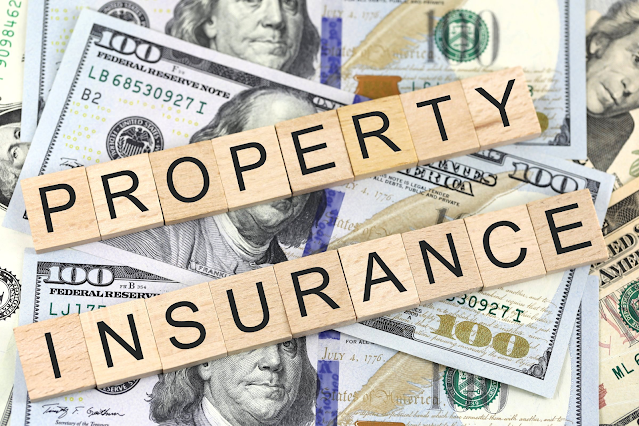What is the concept of property insurance?
- Theft and break-in
- Vandalism and nefarious behavior
- flooding, leaking roofs, and burst pipes all cause water damage
- Hail and wind damage
- Natural catastrophes like earthquakes
- The language of the policy and the alternatives you choose for coverage will determine the actual occurrences that are covered by a property insurance policy.
How property insurance works?
Your tangible assets are financially protected by property insurance in the case of unplanned loss, destruction, or damage. This is how it usually goes. Purchase a policy: You must buy a policy from an insurance company in order to receive property insurance. Your potential coverage options, limits, and deductibles will be described in the policy. Pay your premium: After you've bought a policy, you'll need to provide the insurance company your premium. You pay a sum called a premium in exchange for insurance protection.
When a covered event occurs, you must file a claim with your insurance company if it causes damage to or destruction of your property. Depending on the specific coverage, examples of occurrences that may be covered include fires, theft, vandalism, or natural catastrophes. Certainly! More information on how property insurance functions is provided below. Selecting coverage options: When buying a property insurance policy, you will have the choice of selecting from a variety of coverage options, which will decide the kinds of occurrences and losses that are covered.
If you get homeowners insurance, for instance, you might be able to select coverage for your home, personal property, liabilities, and additional living costs. Property insurance policies also contain coverage limits, which represent the highest sums that the insurer would settle for claims that fall under their purview. It's crucial to select coverage levels that are sufficient to pay for the expense of rebuilding or repairing your home, but not so high that you end up paying for coverage you don't require.
What is the common type of real estate insurance?
Homeowners insurance is the most popular kind of real estate insurance. The physical structure of your house, as well as your personal property and liability risks, are all protected by homeowners insurance. Typically, homeowners insurance covers a variety of occurrences, such as fire, theft, vandalism, and natural catastrophes. In the event that someone is hurt on your property and you are held liable, it might also offer liability protection. The sorts of occurrences covered, the coverage limits, and the deductibles for homeowners insurance policies can all differ
. It's critical to carefully research your policy, comprehend what is and isn't covered, and be aware of any potential restrictions or exclusions. There are several types of insurance besides homeowners insurance. Sure! More information regarding homeowners insurance is provided below: Options for coverage: Homeowners insurance often offers a variety of options for protection, including coverage for liability risks. your personal property, and the physical construction of your home.
You might also have the choice to add extra protection against things like earthquakes or floods. Coverage limitations: The maximum sum that an insurance provider will pay for claims that fall under the policy's scope are known as coverage limits. It's crucial to select coverage levels that are sufficient to pay for the expense of repairing or rebuilding your house, but not so high that you end up paying for coverage you don't require. Deductibles are the sum of money.



